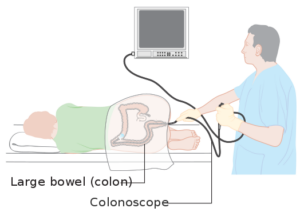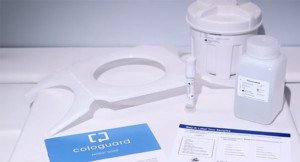
“Usually a black speck in your stool is related to what you are eating – for example, coffee or pepper,” says Sander R. Binderow, MD.
Will bleeding or blood cause black specks in stools?
“A drop of blood in the stool will not present as a black speck – more so [it will] just cause an overall black stool or red depending on where in the intestines or colon the blood is absorbed,” explains Dr. Binderow, who’s with Atlanta Colon & Rectal Surgery.
If you’re worried about black specks in your BMs, you should realize that what you’re seeing may not even be black specks in the first place.
First of all, just how close are you inspecting your BMs?
What you’re seeing may be tiny pieces of a dark green food that got passed through, such as spinach.
When food particles do not fully break down in the digestive tract, they may pass through the intestines relatively intact, and their appearance can become noticeable in your stool.
This can particularly be true for foods with strong colors or those that are rich in pigments, such as blueberries, blackberries or certain types of vegetables – like spinach.
So remember: Undigested particles of food, when mixed with your poops, can appear as very dark or even black specks.
You should be able to prove this by taking some of the fecal matter, placing it on a white paper plate and then viewing it under a magnifying glass, in good lighting.
Between the magnification and the lighting, you should be able to see the true color of the “black specks,” e.g., very dark green, very dark purple.
Dr. Binderow adds, “Specks or spots in the stool do not need to be a cause for concern.”
Colon Cancer
And they certainly do not indicate the possibility of colon cancer, either.
Every patient should get a screening colonoscopy beginning at age 45, and even earlier if they’re at higher-than-average risk.

Colonoscopy. Source: Cancer Research UK
“If patients are reading too much into symptoms before colonoscopy, they could convince themselves they have any of a myriad of medical conditions.
“Rather than worry about symptoms and black specks or coloring of the stool, they should get a colonoscopy or non-invasive colorectal cancer screening test, like Cologuard, to diagnose and eliminate causes of discoloration in the stool.”

This home test, which is non-invasive, uses the latest advancements in DNA technology as it applies to bowel movement samples.
Altered DNA from abnormal cells in the sample can be detected, and this DNA may be associated with colon cancer.

 Dr. Binderow
Dr. Binderow 







































